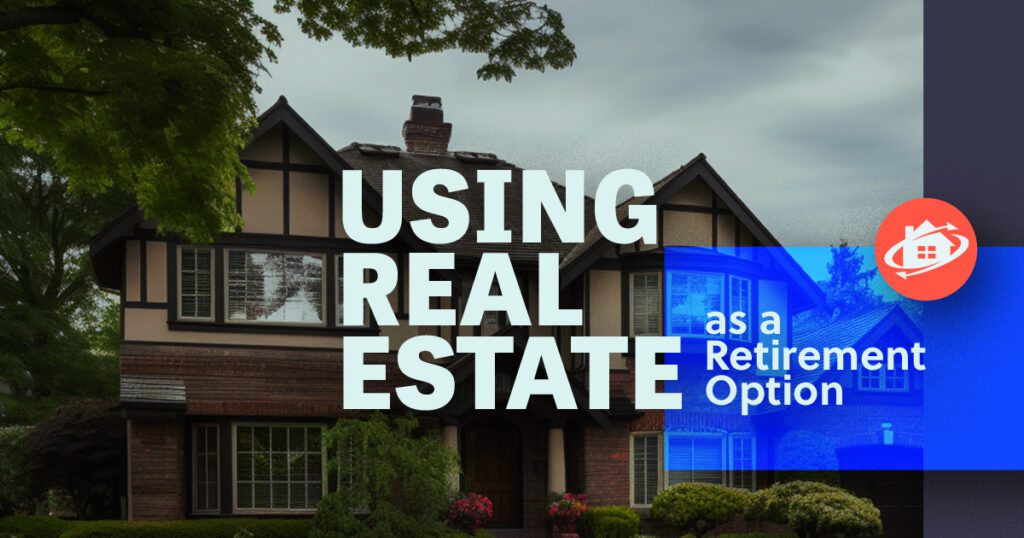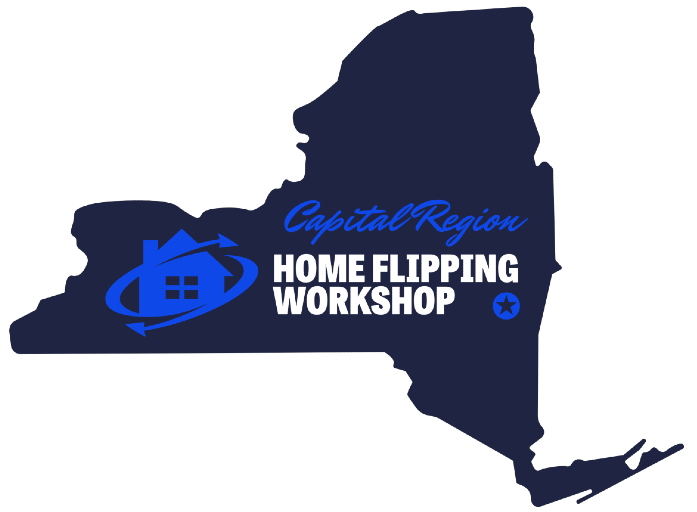Yes, you can retire early with real estate. Lots of people do! But not everyone who tries succeeds. Why? Because not everyone knows how to leverage real estate into a long-term financially viable method of income.
Anyone can flip a house. Not everyone can do it well, but that’s a story for another day.
Anyone can buy a plot of land. Not everyone can develop it to turn a profit.
Anyone can purchase a house or several homes and turn them into rental properties. Not everyone knows the game of real estate and the game of money to turn those properties into maximum profit producers.
If you want to retire early with real estate, yes, you can do it! If you want to do it well, there are three things you need to be sure to pay attention to.
- You don’t know what you don’t know. Avoid the temptation of pursuing real estate retirement investments with a ‘know-it-all’ attitude. Be humble. Be teachable. Be moldable. You could do it on your own right now, but without a proven playbook, you won’t make as much money as you could, and more importantly, it won’t be as much fun or as exciting as it should be.
- You need to know that real estate is a game, and everyone plays. If you’re not making money on real estate you’re not good (yet) at the game. Other people are veterans. They know the ins and outs of the game. They know how to leverage the rules to work in their favor. Commit to learning the game of real estate, and you can become a quality player.
- You need to know that money is a game, and everyone plays—the same thing with real estate. There are lots of mechanisms, vehicles, laws, and written/unwritten rules of money. If your goal is to retire early, you need to learn the game of money and become a quality player.
Right now, you want to retire. Once you’ve found the person or people you want to learn from, discovered how the game of real estate works, and discovered how the game of money works, you may not want to retire… because real estate is so much fun! Making money is fun and the whole process of putting together “a deal” is fun.
You may love the money part, you may love the deal part, or you may love both.
Truthfully, once you discover your roadmap for success (and we want to help you with that in this article), an entirely new set of options become available to you and that is the ultimate freedom.
Glenn & Amber Schworm, founders of Home Flipping Workshop, decided not to retire but rather move their family to Florida and continue overseeing their team running operations in upstate New York. Maybe you’d like to do that, maybe that’s not for you. The point is, you can choose what you want to do. Real estate gives you the option to retire early, and so many other options to go with it!

Is Real Estate A Good Investment for Retirement?
Traditional retirement methods include 401(k)s, IRAs, and Roth IRAs. While these can be a helpful way to ensure you are saving up something for retirement, they probably aren’t going to help you retire early or allow you to retire in style with financial freedom.

Some people say, “I’ve got half a million bucks in my 401(k). I am good to go.” Are you?
Glenn Schworm
These traditional means of retirement rely on the stock market. Are there stocks that skyrocket? Certainly.
Does the stock market tend to rise over the years? Yes.
But it is also highly volatile, and the potential for big gains means taking big risks, risks that could just as easily drastically diminish the value of your retirement account. It is why most financial advisors tend to recommend less risky investments for a retirement account—slow and steady growth.
Many employers will contribute to 401(k)s through employer matching programs. If you have this option, look into it. It may be a great piece of your retirement plan.
But that’s just it. It’s a piece… especially if you want to retire before age 67.
The average person has $84,000 in their retirement account. Compare that to what you typically earn and spend in a year. That $84,000 is probably not going to go far.
Not only do the dollars in these accounts tend to be small, but people are living longer. That’s a great thing! But the truth is living longer costs more money.
Real estate differs as a retirement investment because of the potential for bigger, safer gains. There are a variety of strategies, from investing in fix-and-flips that have the potential to provide large cash gains to reinvest to buying rental properties and building a retirement portfolio that generates life-changing passive income.
Real estate investing is a strong choice for anyone looking to retire early.
Setting the Rules for Retiring Early
Early retirement has almost become synonymous with the American dream.
Gone are the days when we worked for the same company for forty years and retired at 65 with a big retirement party, a pension, and social security.
Today, many set their sights on retiring at age 50 or as soon as the kids are out of school and out of the house.
While that is certainly possible, it means setting the ground rules early.
How much do you need to have set aside to retire at your goal age? You will need substantially more saved to retire at 50 than 67.
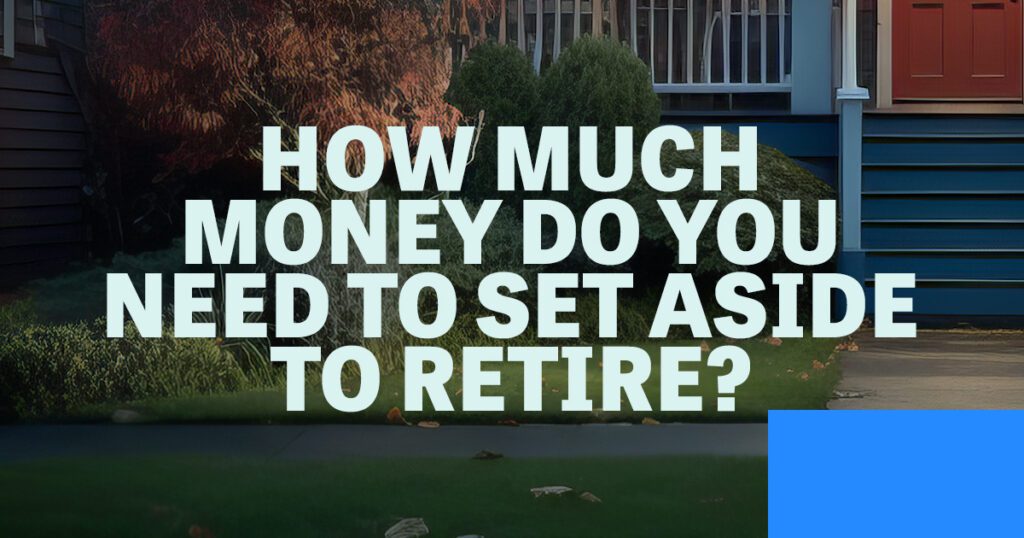
What lifestyle sacrifices do you need to make now to reap the rewards later?
Will savings from your 9-5 job be enough, or will you need to find an additional income-generating source?
Retiring early will take commitment and dedication. There is a reason that many don’t retire early… it’s not easy! It takes dedication, work, and intentionality. But it is absolutely possible if you plan and then commit to your plan.
Decide When You Want to Retire
No matter what stage you are at in life, you have given at least some cursory thought to retirement.
What’s your retirement age goal? 50? 60? When full social security benefits are reached at age 67? Or, maybe you are one of those who say they will never retire.
Let’s say the last one is you. You plan to work as long as you can because doing nothing has zero appeal. You’d go nuts.
Let’s reframe for a minute what we mean by retirement. What if retirement meant you called the shots on when you worked and when you didn’t? What if retirement meant the freedom to work remotely anywhere in the world with a stable internet connection? Are you interested now?
Now what’s your dream retirement age? Are you sitting there thinking it’s too late to achieve that? Maybe it is. But what if it’s not? What if there was a way, and what if retiring early with real estate was truly possible?
Read on, my friend. We have so much to share with you.
Decide What Your Long-Term Financial Needs Will Be
Before you can form any sort of plan, you have to have some idea of what you will need.
- What type of lifestyle are you hoping to maintain?
- What type of monthly income will you need?
- What are your dreams for retirement? Dream vacations? Spend summer in one place and winter in another?
- Will you stay in your current house, downsize, or move to a new city?
- Do you want to build generational wealth (leave a nice inheritance for the kids) or earn just enough to outlive you?
In general, experts agree that you will need 70-80% of your pre-retirement income to maintain your standard of living in retirement. That means if you earned $75,000 per year ($6,250 a month) before retiring, you would need approximately $55,000-$60,000 per year to maintain your accustomed lifestyle in retirement.
Working with a Financial Advisor
A reputable financial advisor can help you think through all these things and more. It’s a good idea to work with a professional to create a plan that takes you from where you are to where you want to go.
Forbes has put together a list to remember when choosing a financial advisor:
- Determine what type of advice you need. Some financial advisors give general retirement advice and some advisors specialize in specific areas. If you want to retire early with real estate, finding an advisor specializing in this area is vital.
- Understand the advisor’s investment philosophy. When you interview a financial advisor, do they come across as open to your plans and goals? Are they open, approachable, and come across as willing to help you meet your financial goals, or do they want to redirect you toward what they believe your goals should be?
- Credentials and experience matter. Ask about their credentials and licenses. These requirements are in place for a reason. Just like you wouldn’t want to work with an attorney that didn’t have a law degree, you don’t want to work with a financial advisor that doesn’t have the appropriate credentials.
- Ask about their fees. Financial advisors don’t advise for free. They have families to feed, too. Their fees may be hourly, as a percentage of assets under management (AUM), or they may charge a flat rate. Ask about the fees and make sure you are comfortable with the arrangement.
- Referrals, referrals, referrals. Ask around – friends, family, co-workers. If you can, get a referral to an advisor someone you trust has had a positive experience working with. People are different, so it may not be a perfect fit for you, but it’s worth interviewing an advisor you know people have had success working with.
- Interview multiple advisors. Meeting with several advisors allows you to compare fees, credentials, and fit, so when you do select an advisor to help you retire early with real estate, you can have peace knowing your future is in good hands.
We are not retirement advisors… but if you’re considering real estate as a retirement option, the amount of time you have before you retire will dictate the types of deals you’ll need to do… and how many. IF you want to continue to do deals into retirement, that changes things, too.
Decide What Level of Involvement You Want In Your Real Estate Transactions
The beauty of real estate as part of a retirement portfolio is there are so many ways to be involved in real estate investment and there is an opportunity for everyone.
The key is deciding what’s best for you. How do you want to be involved? Or, how does your current situation allow you to be involved?
- Are you a natural handyman, and the idea of being hands-on and heavily involved excites you?
- Do you really not want anything to do with real estate except for reaping the returns of your monetary investment?
- Do you want to do just a deal or two to supplement your retirement account?
- Do you want to do as many deals as possible to retire with real estate and build a generational legacy?
- Do you want to do this on your own or work with a partner? Maybe you are great with details, but you have a friend or family member who excels at seeing the big picture. That’s a great team!
The answers to these questions will dictate what type of real estate deals you want to get into.
Real Estate Deals to Help You Retire Early
To retire early with real estate, there are several ‘avenues’ you can take. Each comes with its pros and cons, but it’s really about what suits your needs, skills, and talents.
“Wholesaling” or “Wholetailing” real estate
You may see the ads, commercials, or bandit signs on the side of the road: “We buy houses, ANY condition!!”.

How exactly does this work, and what do these buyers actually do with the property after they buy it?
Every day in America, unfortunate circumstances may arise that force a property owner to sell in a hurry. Poor health, death, divorce, loss of a job, you name it… these circumstances create opportunities for real estate investors like yourself.
Suppose you can find such a “distressed” property or “motivated” seller, negotiate a sale price with the owner (or owner’s representative), and turn around and sell it for a profit without putting a dime into it. In that case, you have just “wholesaled” a home.
Finding a Property
So, how exactly would you find a “distressed” property?
You may be inclined to run an internet search for ideas, but please keep in mind that these ideas are the “low-hanging fruit” and are often utilized by the masses.
You may read that you should search records for properties with delinquent mortgages. We can assure you that you’d be competing with every other investor/wholesaler in the area. It’s highly likely that the current property owner has already been bombarded with low-ball offers and doesn’t want to hear from you.
A little bit of hard work in this area pays off. You’ll need to put on your “investigator cap” and start looking for clues. Be creative.
Is there a property in your friend’s neighborhood that looks abandoned with a lot of weeds and overgrowth in the front yard? Reach out to the owner with a knock on the door or check ownership records.

Search for companies that do junk removal or hoarder cleanouts and reach out to them for leads.
Look for companies that perform biohazard cleanup and give them a call.
Find a “bird dog.”
A bird dog is a real estate investing term that refers to someone who spends their time trying to locate properties with substantial investment potential. They look for motivated/distressed sellers or undervalued properties and then pass the deal on to you in exchange for a fee. You would only pay this fee if they found a deal you accepted.
Oftentimes, your best resources will be friends and family. Reach out to everyone you know. You may be only a few connections away from a motivated seller.
Finding a Buyer
To whom do you sell this distressed property and how?
Typically, you are going to sell to other investors looking to improve and sell a property, aka “flippers.”
There are a few ways to skin this cat. The easiest way is to get a property “under contract” at a very favorable price, and then assign (sell) your contract (not the actual property) to a real estate investor utilizing an “assignment contract.”
What exactly is an assignment contract?
It is a contract investors use to transfer one party’s rights and obligations under an existing real estate contract to another party. They don’t involve transferring or selling the property directly like a purchase agreement. Instead, the buyer under the original purchase agreement (you, as the assignor) assigns their rights and obligations under the purchase agreement to the assignee (the new buyer/investor), for a fee (your profit). The assignee (investor) pays your fee and becomes the buyer under the original real estate contract. You never take ownership or possession.
This method is ideal for someone who doesn’t want to use their own funds.
The fee is set by you and varies depending on how much profit potential the property has.
If you place a property worth $250,000 under contract for $125,000, there is a great profit potential, therefore, a higher fee. You may aim for a minimum fee of $5,000 and increase it as the profit potential increases.
An alternative to this method of assigning contracts to investors is referred to as “wholetailing.”
This process lies somewhere in the realm between wholesaling and fix/flip.
How it works: You find a motivated seller or a distressed property, take ownership of the property through traditional means, do little or nothing to the property, and list it for sale on the MLS with a real estate agent at a higher price than you paid.
The downsides to this are that you’ll need both time and money (or a loan), and there are additional fees such as agent commissions and carrying/holding costs. You will also assume additional risk if the property is worth less than you paid.
The upside is that there is potentially much more profit, and typically minimal improvements are made. You may agree to purchase a hoarder home, have it cleaned out, make minimal repairs, and then list it on the MLS. Your potential buyer pool now includes retail buyers as well as investors. This method is ideal for someone who doesn’t want to get their hands dirty or actively manage a renovation. It’s more “deal” intensive and less “construction” intensive.
Fix-and-Flips
Fix-and-flips have gained huge popularity since the launch of HGTV. Twenty-four hours a day, viewers can tune in to see TV magic turn a dilapidated house into a beautiful and spacious new home seemingly overnight, with investors making huge profits.
Unfortunately, this real estate retirement plan isn’t quite as easy as these popular shows make it seem, but it is true there can be big profit potential IF you can find the right property for the right price and complete the right renovations. You don’t want to jump into this area blindly without any background, training, or experience. Fortunately, the Home Flipping Workshop can help bridge that gap, providing the training and sharing experience to help turn a novice flipper into a pro.
Fix-and-flips also don’t bring the cash in overnight as some shows seem to suggest and require a cash investment upfront. But… on that front, many creative financing options allow you to use other people’s money for the initial investment.

You can expect a fix-and-flip to take 6 – 8 months from purchase to sale. With the length of time involved, it is imperative that you don’t solely value your flip based on current market conditions. When you buy, it may be a hot seller’s market, but by the time you are ready to list your flip, the market may have cooled.
Prices will likely be similar, however, in a hot market, houses may sell in a weekend, but in a normal market, it can take several weeks to get an accepted offer.
When calculating your funding, talk to your real estate agent about what normal market conditions in your area look like and use that information in your calculations.
If you are using hard money (borrowing from a private lender at a higher interest rate) and monthly finance payments are a significant piece of your budget, be sure to budget appropriately. It’s no fun for you, your contractors, or your real estate agent if you are under immense pressure to complete and sell a flip because you can’t afford your payments.
Fix-and-flips take time, knowledge, some cash upfront, and probably some sweat equity, but a strategic flip can provide a large payout in the end.
Buy and Hold
The real estate investment strategy known as “buy and hold real estate” is favored among investors looking to retire early with real estate. This strategy involves purchasing property to hold for an extended period, opening up various possibilities for future gains.
Unlike the quick profits of a fix-and-flip approach, “buy and hold” is about long-term vision and building wealth steadily. Patiently retaining the property opens the door to potential appreciation, rental income, and financial security.
This real estate investment journey might even lead you to consider preserving the property for your children or grandchildren, offering them a source of passive income or a valuable asset they can choose to sell one day.
When it comes to ‘buy and hold’ real estate, there are several paths you can take.
Vacation Rental Properties
Recently, vacation rental properties have become a favorite among investors. The VRBO and Airbnb markets have exploded in partial thanks to COVID-19.
Purchasing a property below value, renovating it, and then hiring a management company to manage bookings and maintenance became a sure-fire investment strategy.
But with the influx of investors in the vacation rental industry, the market became overly saturated. It doesn’t mean the opportunities to own and operate a vacation property have disappeared; it just means investors must research and buy wisely.
Properties remodeled with a theme that speaks to the local culture tend to be especially popular with travelers and can attract special attention to your listing. Houses themed for bachelorette parties, family adventures, or luxury oasis getaways will help your property stand out among other vacation rental properties.
A successful vacation rental property can provide passive income and a solid positive cash flow while the property continues to appreciate in value, helping an investor to reach their goal of retiring with real estate.
Residential Rental Properties
Have you considered owning rental property in retirement?
Residential rental property ownership (landlording) is a tried and true real estate investment strategy.
There are a few ways to build a rental property portfolio.
The first is to buy and live in a home for at least two years (for tax purposes). Then, buy a new home, keep the original property, and rent it out. Then repeat. This method allows you to carry conventional loans on each property instead of paying investor interest rates on the rental property mortgage.
The second option is to simply look for a property currently listed for sale. Work with an agent to assist with your search and help negotiate a purchase price. You don’t have the same benefits that you would have if you lived in the home for the prior two years, but this is certainly a viable option.
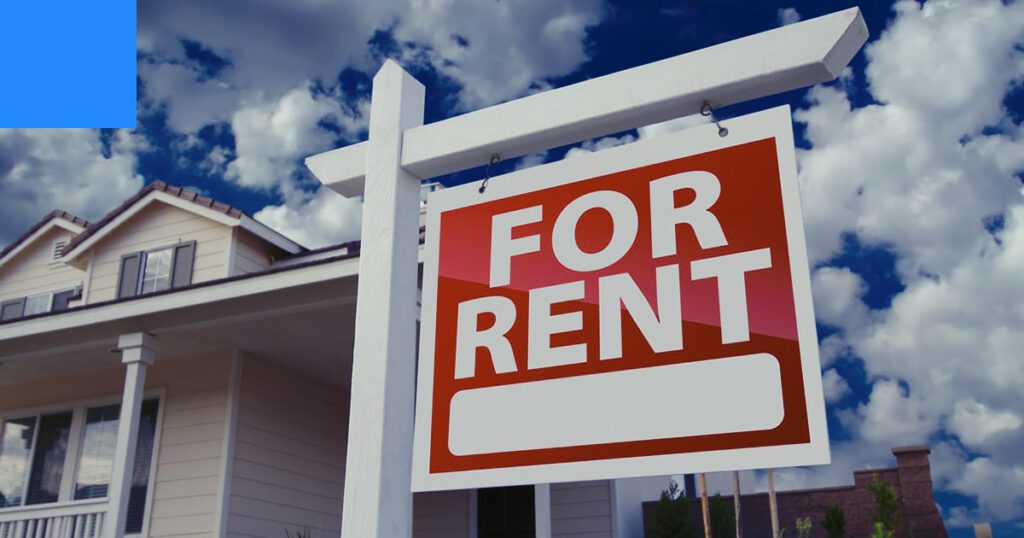
The search parameters for a rental property that has a positive cash flow can vary from state to state, so seek the advice of a local real estate professional for specifics. But, in general, you are looking for a property with a high enough monthly rental income to cover any mortgage you have on the property as well as any repairs or maintenance issues that arise.
With either option, you can manage it yourself or hire a property management firm for a monthly fee. These firms typically screen rental applicants, collect rent, and manage repairs making the experience pretty hands-off for the landlord and easy to own rental property in retirement.
In the unfortunate event you end up with a renter who becomes unable or unwilling to pay rent, these firms will also handle the eviction process.
A quick tip on selecting a management firm: Check their online reviews. Both landlords and tenants typically provide reviews. A manager with multiple negative reviews from tenants is a red flag and indicates they are not managing effectively.
BRRRR
No, this one isn’t about buying real estate to retire early in North Dakota or Canada. BRRRR stands for Buy, Rehab, Rent, Refinance, Repeat.
The BRRRR method involves Buying and Rehabbing a “fix and flip” property, but instead of selling it, Renting it out, procuring a cash-out Refinance loan, and using the extra cash to purchase another property. (Repeat.)
This method involves significant risks, so be sure to seek professional financial advice before utilizing this strategy as part of a real estate retirement strategy.
Getting Started In Real Estate — For Retirement or Otherwise
Unlocking Financial Freedom: 5 Steps to Real Estate Investment Success
If the thought of achieving financial independence, building generational wealth, or finally breaking free from the shackles of debt appeals to you, real estate investments could be the key to making these aspirations a reality. Whether you’re a real estate novice or have faced challenges in your previous endeavors, with the proper training, coaching, and determination, real estate investing can be financially rewarding. But you can’t enter into it mindlessly.
Step 1: Educate Yourself
The first and most important step in your real estate journey is to educate yourself. The real estate investment world can be complex and overwhelming, but numerous resources are available to help anyone understand the fundamentals of real estate investing.
Books, podcasts, online courses, and local or online workshops are great places to start. Learn about different investment strategies such as fix and flips, wholesaling properties, and building a rental portfolio. Understand the risks and rewards of each approach, and discover which aligns best with your financial goals and risk tolerance.
Step 2: Set Clear Goals
Once you’ve armed yourself with knowledge, it’s time to set clear and achievable goals. Do you want to build your real estate retirement fund to enjoy your golden years without financial worries? Do you want to leave a lasting legacy of generational wealth for your family? Or do you just want to break free from the burden of financial debt that weighs heavily on your shoulders? Whatever your objectives, defining them with clarity will provide you with a roadmap and a sense of purpose throughout your real estate investment journey.
Step 3: Build Your Network
Real estate investing is not a solo endeavor. Success often comes from building a strong network of like-minded individuals, industry professionals, and coaches. Connect with experienced investors, real estate agents, brokers, contractors, and lenders. Don’t let pride come between you and financial freedom. Seek the help of those who have gone before you and learn from their successes and failures. Your network’s collective knowledge and support will prove invaluable as you navigate the market and overcome challenges. Everyone starts somewhere, so don’t hesitate to ask questions and seek advice from those who have already paved the way to success.
Step 4: Take Action and Be Persistent
Taking action is where the rubber meets the road. Don’t let fear or self-doubt hold you back. Armed with your newfound knowledge and a supportive network, start making informed decisions. Whether it’s finding funding, potential properties to flip, identifying wholesale opportunities, or analyzing rental properties for passive income, take those first steps. Be prepared for setbacks and hurdles, as they are a natural part of the learning process. Success may not happen overnight, but persistence and resilience will ultimately pave the way to a win.
Step 5: Learn from Experience and Adapt
Real estate investing is a changing and shifting field, and the learning never truly stops. Embrace the experiences, both positive and negative, as they offer valuable lessons for growth. Keep an open mind and be willing to adapt your strategies as the market changes. Continuously educate yourself, and stay up-to-date with industry trends such as rental markets, interest rates, sales times, and even design trends.
Real estate investing is not reserved for a select few; it’s an accessible path to financial success for anyone, but you must have the passion and dedication to pursue it.
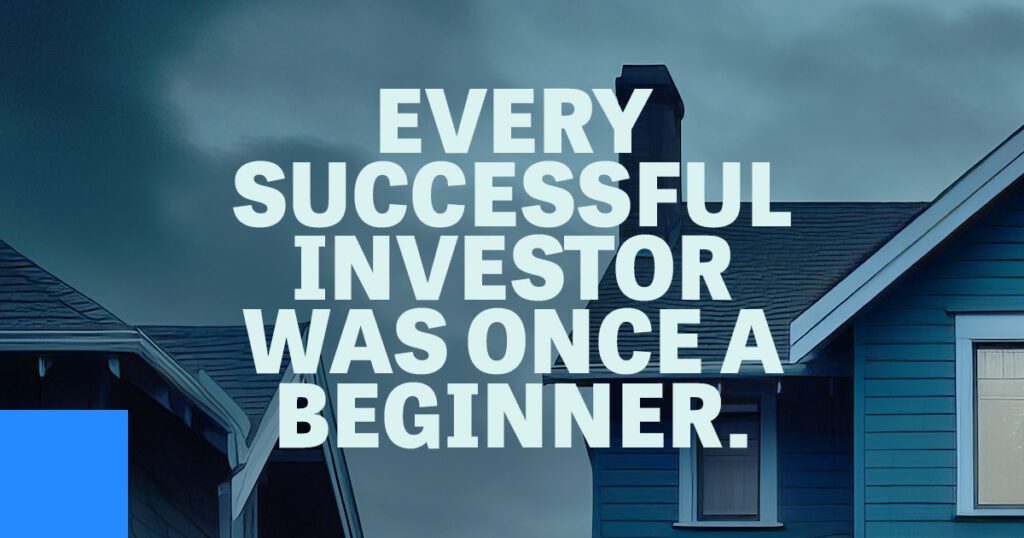
Fix and Flip is Perfect for Beginning in Real Estate
Glenn and Amber Shworm, owners of VestorPRO and creators of the Home Flipping Workshop have flipped over 1,100 homes since 2008, and it all began with one fix and flip.
They weren’t real estate experts; they just wanted to get out from under crushing credit card debt and maybe, just maybe, someday live on the beach.
They started with determination.
Along the way, they have learned from their successes but have learned much more from their mistakes and, dare we say it, failures. Yes, there have been deals that lost money.
You must be prepared for that if you want to retire in real estate.
But the Schworms realized that you can learn the basics of all you need to know about real estate after doing just two fix-and-flips. Flipping two homes will provide the foundation and understanding to step out and do more if that’s your desire.
A solid “business plan” is key to your fix-and-flip success. You can read more detail about creating a plan here, but below we will outline the basic steps for a successful fix-and-flip.
- Connect with a network or real estate investment coach
Learn from the experience of others and give yourself a HUGE headstart. Instead of making all the mistakes others have already made, learn from them and avoid making them yourself.
You may be tempted to begin your journey alone, but hiring a coach who can help you:
- know what to look for in a lucrative flip,
- how to find the best deals (TIP: you probably won’t find the best deals on the MLS),
- navigate the negotiations,
- know what improvements to make,
- how to build your budget and timeline, and
- what to list the completed property for
will be an invaluable investment that will allow you to achieve financial success much quicker than going it alone.
If you get nothing else out of this article and want to retire early with real estate, don’t do it alone! Seek the advice of experts.
- Research and More Networking
Finding the right property for the right price is critical to your success in retiring with real estate. Unfortunately, it’s not as easy as calling up your favorite real estate agent and having them show you a few houses.
The best deals with the most profit potential will be purchased by investors long before they ever hit the open market.
You will need to network with people who know of motivated sellers before anyone else does. Motivated sellers might be people who are on the verge of bankruptcy or foreclosure, family members looking to sell the home of a recently departed loved one, those going through a divorce, or owners of abandoned property.
How do you find those people? Build a relationship with people or trades who would have that information and would be willing to give you an inside scoop.
Arm yourself with research and knowledge so that when a potential property comes your way, you will quickly know if it is a profitable investment. You likely won’t have much time to make an offer, so ensure you are prepared to evaluate the property quickly and provide a fair price.
- Funding and Finances
Steps 2 and 3 almost go hand in hand.
It is imperative that you have your funding in place before the perfect property becomes available. You may not have the cash in your bank account, but you need to know where the money will come from, be it from a hard money lender or accessing a retirement account, and have quick access to it.
If you are using a hard money lender (a high-interest short-term loan from a private lender), be sure you calculate plenty of time to renovate and sell the home. The process can take 6-12 months, depending on the scope of the renovation and the health of the real estate market. If you don’t plan appropriately, the hard money fees can quickly eat away your profits. It’s not that this is a bad funding option, it is just imperative to plan wisely.
Keep in mind that funding isn’t just about having enough cash to purchase the property but also having enough to renovate the property.
When determining a fair offer for a fix-and-flip property, you will need to be able to quickly assess what upgrades you will need to make and approximately how much those upgrades will cost.
A coach will prove invaluable in helping you make these assessments. They will know what upgrades will provide a high return on your investment and which upgrades will only eat at your profit margin.
Many first-time investors want to remodel their property as if it were their own home with their own preferences but you have to be able to separate your preferences from those that will generate the most profit and demand for your property in the most effective timeline. Time is money.
- Buy
This is where it gets fun… and real! You’ve found the right property, negotiated a fair price, and now it is just a matter of navigating through escrow and title and waiting for the property to record and the keys to be in your hand.
But don’t waste this time. The clock has started ticking, and much can be done during this time, including laying out the scope of work, building out a schedule, and talking to contractors if you aren’t doing all of the work yourself. And if you aren’t a licensed electrician, plumber, and HVAC tech, we highly recommend that you don’t do all of the work yourself.
It is likely that if you are buying an off-market property, part of the negotiations will be to purchase the property “as-is,” meaning you aren’t going to ask for the seller to make or pay for repairs.
However, having the property inspected is still a good idea to help you identify what areas you will need to invest in repairs. If you choose not to fix items during your renovation, you won’t be surprised when you sell the home and the inspector calls out that specific issue.
Depending on the situation, you may have easy access to the property during the purchase process, or you may have no access at all. Either way, don’t waste this time and be ready to hit the ground running as soon as you have the keys in hand.
- Budget and Plan
A significant portion of this step can be done while waiting for your property to close escrow.
How much work will you do yourself? Which trades do you want to hire a licensed contractor to do the work? Hiring licensed contractors for electrical, plumbing, and HVAC is highly recommended for liability purposes.
Your funding may dictate your timeline. If so, the scope of your remodel may adjust depending on what can reasonably be accomplished in the allotted time.
If you haven’t priced material or labor in the last year, make sure that you secure updated pricing. These costs can change significantly over the course of a year, depending on supply and demand, so don’t budget with numbers you haven’t recently confirmed.
If this is your first or even second flip, seek advice from a coach or other experts who can help you:
- Determine which upgrades will provide the biggest return on investment
- Budget renovation costs
- Build a timeline and order of work
- Recommend contractors
- Help you navigate the permitting process on any work that requires permits
- Point out any areas where you might expect surprises or can expect things not to go as planned.
While it is essential to create a plan, be prepared to be flexible. There will be surprises and delays, especially on a home that is older or in a state of deferred maintenance. Planning and budgeting for surprises will help to mitigate the stress of cost and schedule overruns.
- Renovate
Some flippers are very hands-on in their projects because they enjoy the work, and others are very hands-off and hire contractors to complete every aspect of the remodel.
Neither way is better than the other, just know your strengths and weaknesses, and renovate accordingly.
On your first flip or two, it’s possible you will do more hands-on work than you would prefer, but it is a great way to get to know the ins and outs of remodeling and build relationships with contractors and trades.
Tasks like painting, installing hinges and doorknobs, landscaping, and cleaning don’t require a lot of skill or experience and can help keep your remodeling costs down.
As you continue your journey to retiring with real estate, you may become completely hands-off, but again some love being hands-on and find joy in getting their hands dirty and creating something new, fresh, and beautiful.
- Sale
Once your property is rehabbed, it’s time to list and reap the financial rewards of your hard work, dedication, and labor.
A local real estate professional can not only help you determine an ideal listing price, arrange for professional photos to showcase your flip, and list your home on the market to be seen by prospective buyers, they can help navigate the sale logistics, negotiate any requested repairs and ensure the appraiser knows all of the upgrades and repairs done to the home to help ensure the house appraises for the contract price.
Secure Funding for Your Flip (And Future Deals)
If you’re reading this, eager to retire early with real estate, but finding you have funding concerns, don’t despair!
Don’t use your own money. Even if you can fund it all yourself, you shouldn’t.
You need to have some money, but you shouldn’t be the one putting up the bulk of the investment. Work with other people’s money. There are many ways to finance your real estate retirement ventures. Sometimes it just takes a little creativity.
You may want to start simply by asking friends and family to help fund your project. The pitfalls of this are obvious. You don’t want any awkward conversations at the family holiday gathering. Treat their loans as you would a bank loan. Pay interest, put the terms in writing, and have a plan in place in the event things don’t go exactly as you had expected.
In some instances, the seller may offer to finance the sale. This isn’t very common in a “seller’s” market when buyers are plentiful, but in a neutral or buyer’s market, this may be a viable option. In this scenario, the seller takes on the role of the lender, extending you enough credit to purchase the home. In most cases, you will sign a promissory note to the seller detailing the interest rate, repayment schedule, and what happens if you default on your loan. Then, you repay the loan as you would a traditional lender, paying off the loan when you sell the property.
Tap into your 401(k) or IRA. Either of these may be an option, but both come with added IRS rules and restrictions. If you use the IRA route, your IRA must be “self-directed” (SDIRA), simply meaning that you are making the investment decisions while an IRA “custodian” or “trustee” administers the account. You will need to find a qualified IRA custodian that specializes in SDIRAs, then open and fund your account. If you don’t have enough funds to pay cash for your investment property, you’ll need to get a loan and use your SDIRA to fund the down payment. This requires a specific type of loan called a “non-recourse” loan, where the IRA account holder is not personally liable. The loan is to the IRA, not the individual IRA owner and the property secures it.
Borrowing from your 401(k) has its own set of rules and restrictions, most notably that in the event you lose your job, the 401(k) loan may become payable in full.
Many people who currently own a house have equity. You may consider pulling out some of this equity as a home equity loan or home equity line of credit (HELOC).
Hard money lenders are popular with many investors. A hard money loan is usually relatively simple and quick, although they typically have a higher interest rate—no need for extensive credit checks and the standard loan qualification process. The lender reviews the specific property to determine its value and potential value after improvements. The amount of the down payment required is often based on the property’s equity as determined by the lender.
Like finding the right property, finding funding often requires a little creativity and ingenuity, but money shouldn’t be the barrier that keeps you from retiring with real estate. As little as $5,000 of your own investment is all it takes to get started.
Protecting Yourself Legally
We’re not legal experts, but you will need legal expertise. It doesn’t have to be complicated or complex… but you have to take basic steps to protect yourself.
For several reasons, setting up a Limited Liability Company (LLC) is crucial for real estate investors engaged in fix-and-flip projects. First, an LLC provides a layer of liability protection for the investor(s).
When you operate as a sole proprietorship or a partnership, your personal assets (house, car, bank account, etc.) are at risk if any legal issues or financial liabilities arise during the fix and flip process.
No one likes to think these things will happen, but unfortunately, accidents happen, and unscrupulous people are always looking to take advantage of someone or a situation.
By establishing an LLC, you create a separate legal entity that shields your personal assets from potential lawsuits or debts related to the property. This separation can prove invaluable in safeguarding your personal finances and reducing personal risk while still allowing you to profit from real estate investments.
Second, an LLC offers flexibility and ease of management. As you do more fix-and-flips, you may find yourself doing more than one flip at a time. Setting up an LLC allows you to compartmentalize each fix-and-flip venture under its own separate entity, simplifying bookkeeping, accounting, tax reporting, and providing clear financial records for each property.
Finally, the tax advantages of an LLC can be beneficial for investors hoping to retire with real estate. Unlike corporations, LLCs enjoy “pass-through” taxation, where profits and losses are passed through to the individual owners and reported on their personal tax returns. It may result in lower tax rates.
The process for setting up an LLC varies by state, but in many, if not most, states, it is an easy and inexpensive process. If you have a coach or mentor, they may be a great source for more information on how to set up an LLC in your state.
In addition to setting up an LLC, consult with legal and financial professionals to ensure compliance with local laws and regulations and for assistance in drafting any contracts or legal documentation.
Taking Your First Step Towards Retiring with Real Estate
How hungry are you for success in real estate?
How aggressive do you want to be in your journey to retiring with real estate?
It will determine the best next step for you.
Get RE-ACTION For Free
If you are intrigued, not quite ready to move, but you’re ready to learn and get a foundational understanding of how everyday, ordinary people can make real estate work for them, then further reading is an ideal next step.
Glenn and Amber Schworm of VestorPRO and the Home Flipping Workshop, recently released their book, RE-ACTION.

This book will not change your life… reading the book and then taking action will change your life!
This easy-to-read guide reveals how to get your start in real estate investing… at a scale anyone can take on and grow at a rate that is perfect for you and the season of life you’re in!
RE-ACTION is a guide for aspiring real estate investors that covers the basics and helps new investors avoid the pitfalls Glenn and Amber encountered when they started flipping houses almost two decades ago.
RE-ACTION is a must-read for anyone who wants to retire with real estate. We will even send you the book for free!
Attend Home Flipping Workshop
This step is for one of two people — the person ready to get started, you have money ready to invest, and you want to take action… but you don’t want to waste money or time.
The other person is the person who has tried flipping and is either concerned they’re leaving money on the table, or they’re miserable in the process but don’t want to give up on real estate just yet. They want someone to tell them, “Do it this way!”

Get a ticket to the next Home Flipping Workshop (HFW). It’s online, it’s easy to attend, and it’s a no-brainer for anyone eager to retire with real estate.
And if you are truly serious about success, upgrade to VIP. It is how you tell yourself, the HFW staff, and Glenn & Amber you’re serious, and they will go the extra mile for people who are ready to take action!
Investing just three days from the comfort of your own home will allow you to start miles ahead of other real estate investors because you will have learned from others who have completed THOUSANDS of flips.
You will learn what works, what doesn’t, and what to watch out for—potentially saving you a huge amount of money and countless hours of time and frustration.
Take a little bit of time and invest a small amount of money upfront to make more money, quicker.
Real Estate for Retirement Can Work For You
So what’s your dream?
Retire in five years? Ten?
Buy your dream home?
Pay off debt?
Be able to work where you want, when you want?
How much would it take every month so you never again have to worry about money?
Are you willing to work hard? If you are, it can be rewarding and real estate can usher in that reward.
Maybe you are sitting there thinking this is impossible because you are a single mother. Perhaps you and your spouse work full-time and are raising busy kids. Maybe you are in debt and don’t know how you will ever be able to fund a real estate investment.
But here’s the deal, many people just like you, with the same concerns, have found success, financial freedom, and have been able to retire early with real estate. You can, too.
Don’t believe it? Read some of the testimonials here. Be inspired. Dare to dream again.
Take action right now and you will instantly be one day closer to financial freedom and the ability to retire with real estate.

